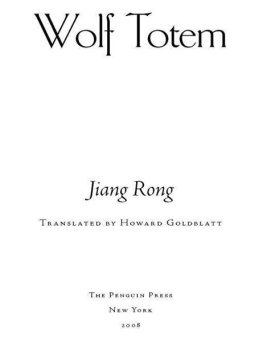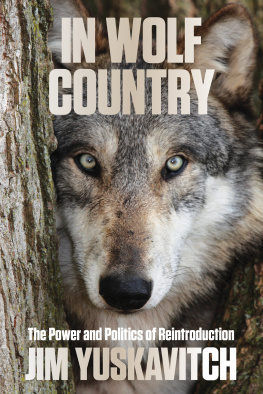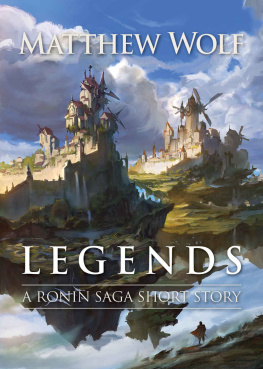Table of Contents
THE PENGUIN PRESS
Published by the Penguin Group
Penguin Group (USA) Inc., 375 Hudson Street, New York, New York 10014, U.S.A.
Penguin Group (Canada), 90 Eglinton Avenue East, Suite 700, Toronto, Ontario,
Canada M4P 2Y3 (a division of Pearson Penguin Canada Inc.) Penguin Books Ltd,
80 Strand, London WC2R 0RL, England Penguin Ireland, 25 St. Stephens Green, Dublin 2,
Ireland (a division of Penguin Books Ltd) Penguin Books Australia Ltd, 250 Camberwell Road,
Camberwell, Victoria 3124, Australia (a division of Pearson Australia Group Pty Ltd)
Penguin Books India Pvt Ltd, 11 Community Centre, Panchsheel Park, New Delhi-110 017,
India Penguin Group (NZ), 67 Apollo Drive, Rosedale, North Shore 0632, New Zealand
(a division of Pearson New Zealand Ltd) Penguin Books (South Africa) (Pty) Ltd,
24 Sturdee Avenue, Rosebank, Johannesburg 2196, South Africa
Penguin Books Ltd, Registered Offices:
80 Strand, London WC2R 0RL, England
First published in 2008 by The Penguin Press,
a member of Penguin Group (USA) Inc.
Translation copyright Penguin Group (USA) Inc., 2008
All rights reserved
Originally published in Chinese as Lang Tuteng
by Changjiang Literature and Arts Publishing House, 2004.
Publishers Note
This is a work of fiction. Names, characters, places, and incidents either are the product of the
authors imagination or are used fictitiously, and any resemblance to actual persons, living or dead,
business establishments, events, or locales is entirely coincidental.
LIBRARY OF CONGRESS CATALOGING-IN-PUBLICATION DATA
Jiang, Rong.
[Lang tu teng. English]
Wolf totem : a novel / Jiang Rong ; translated by Howard Goldblatt.
p. cm.
eISBN : 978-1-594-20156-1
I. Goldblatt, Howard. II. Title.
PL2942.3.A 44L3613 2008
895.1352 2007037554
Without limiting the rights under copyright reserved above, no part of this publication may be reproduced, stored in or introduced into a retrieval system, or transmitted, in any form or by any means (electronic, mechanical, photocopying, recording or otherwise), without the prior written permission of both the copyright owner and the above publisher of this book.
The scanning, uploading, and distribution of this book via the Internet or via any other means without the permission of the publisher is illegal and punishable by law. Please purchase only authorized electronic editions and do not participate in or encourage electronic piracy of copyrightable materials. Your support of the authors rights is appreciated.
http://us.penguingroup.com
Translators Note
In 1969, a young Chinese intellectual from Beijing answered Chairman Maos call for city dwellers to go up to the mountains and down to the countryside, joining as many as a hundred like-minded youngsters in traveling to one of Chinas most remote, most primitive spots: north-central Inner Mongolia. While most of the fifteen to twenty million young urbanites who were sent out of the cities to be rusticated dreamed constantly of going home and, insofar as possible, shunned close attachments to their rural hosts, Jiang Rong did in fact learn from and befriend the herdsmen with whom he lived and worked. In all, he spent more than a decade as a shepherd on the sparsely populated Olonbulag, a fictional setting in the Ujimchin Banner, a hardscrabble existence in a place where life is unimaginably hard on all its inhabitants, man and beast.
Despite its remote location and hostile environment, Inner Mongolia was not spared the excesses of the disastrous Cultural Revolution (1966-1976), when the nation was on war footing, arrayed against domestic enemies of the state and international enemies of the nation, real and imagined. The four olds (old thought, old culture, old customs, and old practices) were under attack, targeting, in particular, ideologically backward members of superstitious and conservative rural societies. When they werent working to bring down important political, military, and cultural figures, Red Guard factions spent their time tormenting ordinary citizens. Military organizational schemes replaced traditional tribal order, military terminology was in vogue, and military commanders, competent or not, were placed in charge of production activities. In Mongolia, it was an onerous time for people whose lives were centered on respecting the ways and superstitions of their ancestors. They took great pride in the military conquests of those ancestorsthe great Mongol hordes of the twelfth and thirteenth centuriesand were unmoved by the ideologies of Mao and his followers, whose Han ancestors had been no match for the mounted warriors of Genghis Khan. The key to the success of the khans, according to Mongol legend, as the author discovered during his years on the grassland, was the wolf, the only significant land-bound predator that was able to thrive for thousands of years.
Wolves have captured the imagination of peoples everywhere, but seldom have they been venerated to the extent that they are by nomads of the Mongolian grassland. Their paradoxical role in the peoples livesas predator and prey, as defilers of herds (the little lives) and protectors of the grasslands ecology (the big life), and as animals to be feared and at the same time reveredforms both the actual and the metaphorical core of this magnificent novel. Wolves, courageous and ferocious, loyal to the pack, and respectful of their environment, are posited as an antidote for what ails Chinese societya society the quasi-autobiographical protagonist compares to the sheep he tends and which he must protect against the clever, almost supernaturally shrewd wolves he so admires. The symbiotic relationship between the herdsmen and the wolves, participants in a delicate ecological balancing act of keeping at bay the Gobi to the west and the Han Chinese to the south, is threatened by encroachments by both. Wolf Totem, which sold in the millions in Chinain both authorized and pirated editions ushered in heated debates on the Chinese character. It is a work that compellingly blends the passion of a novelist who lived the story he tells and the intelligent ethnological observations of a sympathetic outsider.
In 1979, when Chinese society was trying to rid itself of the effects of the Cultural Revolution, Jiang Rong was admitted into the Chinese Academy of Social Sciences as a graduate student. In 1988, Jiang Rong, who had become a political scientist attached to Beijing University, began writing this novel, obsessed with a story that had stayed with him for nearly twenty years; six years later it was finished and instantly became a runaway bestseller.
In the translation of Wolf Totem, I have been aided by several people. First and foremost, the author and his wife graciously and enthusiastically responded to all my inquiries concerning both textual and cultural matters. Mongolian spellings were supplied by Chigchin, a graduate student in English at the Inner Mongolia University. At Penguin, both the novel and the translator were aided by Jo Lusby in Beijing and Liza Darnton in New York, and, most significantly, by the skillful and imaginative editing of Beena Kamlani. Sandy Dijkstra was instrumental in getting the project started. Finally, Sylvia Lin read and commented on the entire translation, as she always does. To all, my heartfelt thanks.











